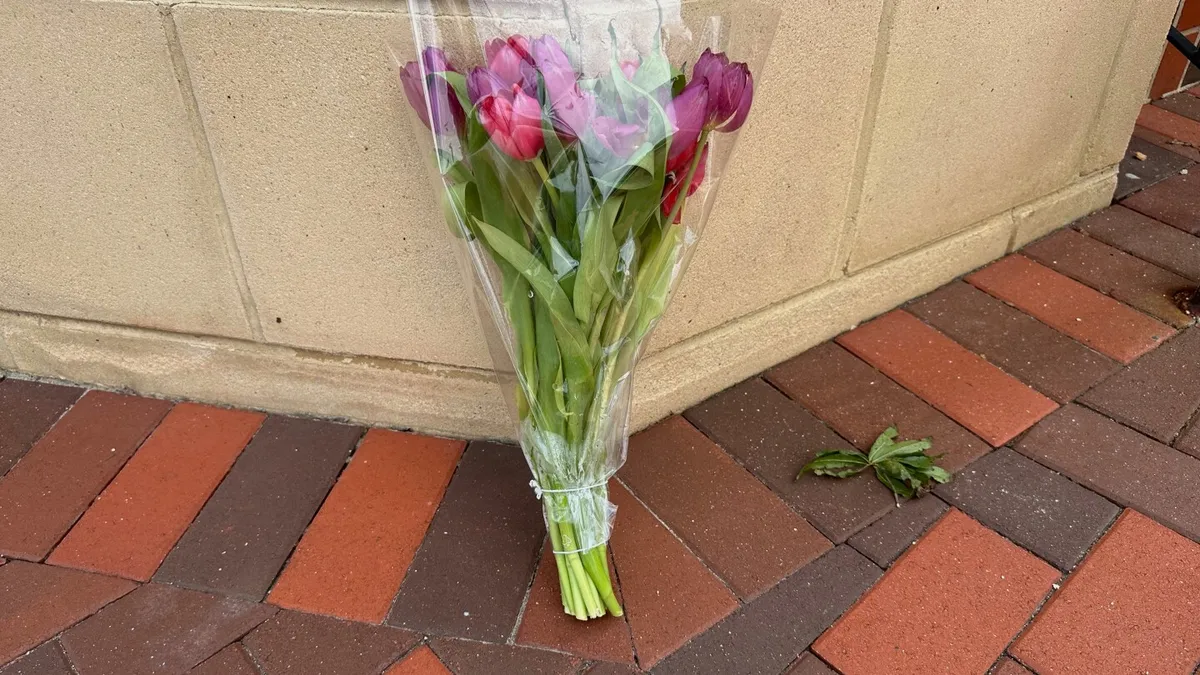
A Georgia man, who had previously attributed his feelings of depression and suicidal ideation to the COVID-19 vaccine, has been identified as the shooter in a harrowing incident late Friday at the U.S. Centers for Disease Control and Prevention (CDC) headquarters. The 30-year-old suspect, Patrick Joseph White, opened fire, resulting in the tragic death of a police officer. The incident highlights growing concerns about vaccine misinformation and its potential to incite violence.
According to law enforcement officials, White attempted to gain entry to the CDC's Atlanta headquarters but was thwarted by security personnel. He subsequently drove to a pharmacy across the street, where he opened fire. Armed with five firearms, including at least one long gun, White's actions left several bullet marks in windows across the expansive CDC campus, affecting at least four buildings.
DeKalb County Police Officer David Rose, 33, who had recently graduated from the police academy and served as a Marine in Afghanistan, was fatally wounded while responding to the scene. White was later found deceased on the second floor of a nearby building. Authorities are currently investigating whether his death resulted from police fire or was self-inflicted, with the Georgia Bureau of Investigations describing the crime scene as “complex.”
The American Federation of Government Employees, Local 2883, representing CDC workers, has voiced strong concerns regarding the incident. The union stated that the attack was not random and reflects a culmination of “months of mistreatment, neglect, and vilification” suffered by CDC staff. They are urging federal officials to publicly condemn vaccine misinformation, which they believe places scientists at risk.
In a news release, the union emphasized the necessity for a clear stance from the CDC and the Department of Health and Human Services (HHS) against vaccine disinformation. They argue that such a public declaration is crucial to restoring public trust and ensuring that accurate, science-based information prevails.
Fired But Fighting, a group representing laid-off CDC employees, has accused HHS Secretary Robert F. Kennedy Jr. of fostering a hostile environment towards the CDC workforce through his “continuous lies about science and vaccine safety.” In response to the shooting, Kennedy reached out to CDC staff, asserting that “no one should face violence while working to protect the health of others.”
The CDC employs thousands of individuals focused on critical disease research, and many staff members were forced to shelter in place during the incident. The union reported that over 90 young children were locked down at the CDC’s Clifton School, raising serious concerns about the psychological impact of such traumatic experiences on staff members.
In the aftermath of the shooting, the union has demanded that the CDC ensure that all affected buildings are made “completely secure” before staff are required to return to work. They argue that working in proximity to bullet holes risks re-traumatizing employees who have already faced a horrific event. Furthermore, the union is advocating for enhanced perimeter security on all CDC campuses until the investigation is concluded and findings are shared with staff members.
Patrick Joseph White's father played a crucial role in identifying him as the shooter, revealing that his son had been struggling emotionally, particularly after the death of his dog. Law enforcement officials noted that White had become increasingly fixated on the COVID-19 vaccine. A neighbor, Nancy Hoalst, described him as a seemingly good person who had expressed deep distrust of vaccines in conversations. However, she expressed her disbelief that he would resort to violence, stating, “I had no idea he thought he would take it out on the CDC.”
This tragic incident not only underscores the potential dangers associated with vaccine misinformation but also highlights the urgent need for effective communication and protective measures to safeguard public health officials. Continued investigation and dialogue are essential as the CDC and its staff navigate the aftermath of this shocking event.